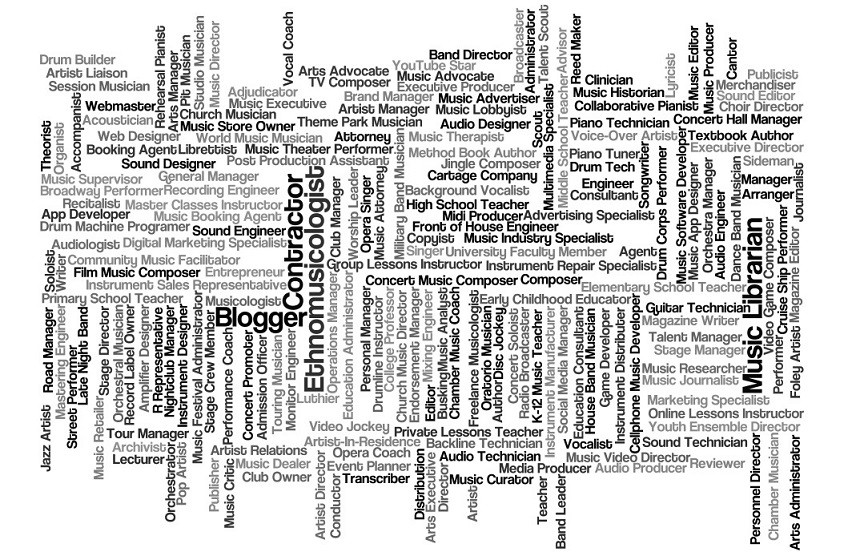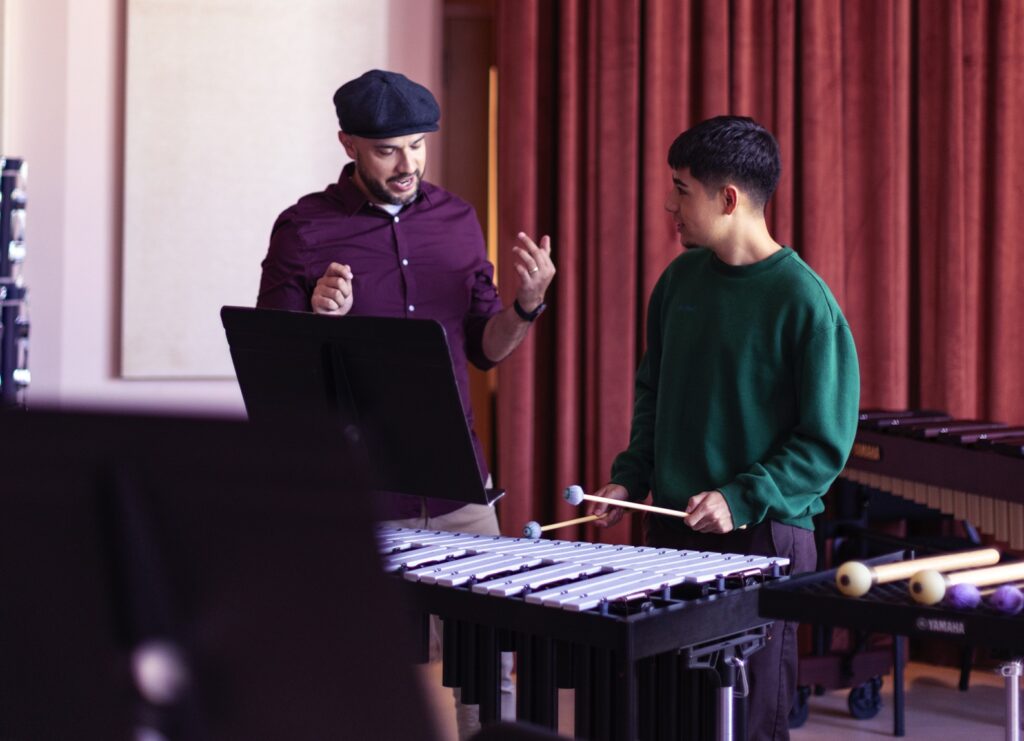Be Marketable: Combine Performance and Entrepreneurship
To adapt to any situation, you must understand the importance of personal branding, social marketing and the interview process.
Over the past 20 years, careers in music have become as varied as the numerous musical genres. The music business is a fast-paced, competitive and ever-changing landscape, which requires specialized tools and knowledge to survive.
It’s not enough to learn the notes, perform the repertoire or audition for groups. Your plans will change, and you must be able to adapt to any situation. In this article, I will provide tools and resources on personal branding, social marketing and the interview process. I will share tips that I have learned and honed over my 25-year career as an educator, professional musician and businessperson.
What is Branding?
 Before we start talking about social marketing, you must understand the difference between branding and personal branding. Branding is the process for creating a name, logo or symbol that identifies and differentiates your product and services from your competitor’s (Entrepreneur.com). Some recognizable brands that come to mind are Apple, Nike, Starbucks or Netflix.
Before we start talking about social marketing, you must understand the difference between branding and personal branding. Branding is the process for creating a name, logo or symbol that identifies and differentiates your product and services from your competitor’s (Entrepreneur.com). Some recognizable brands that come to mind are Apple, Nike, Starbucks or Netflix.
In his book “The Brand You 50,” author Tom Peters coined the phrase “personal branding.” He states that a personal brand is “your promise to the marketplace and the world.”
To develop your personal brand, first answer these questions:
- What do you want to be known for?
- Why will people seek you out?
- What makes you unique?
- What’s your story (your “why”)?
- How can you add value?
This step is crucial to the development of your personal brand. Once you answer these questions, it’s time to start building!
Building Your Online Presence
 Ready to build your online presence? You want to control your message and how people perceive you on the internet. So, build a personal website and set up your email address and social media accounts.
Ready to build your online presence? You want to control your message and how people perceive you on the internet. So, build a personal website and set up your email address and social media accounts.
By creating an online presence, you ensure that your personal branding matches across all your digital platforms. As we all know (hopefully), what happens on the internet, stays on the internet, so it’s vital that you control your message and online presence. Where do you start?
Namecheckr.com is a site that will research domain and social usernames and check for its availability. As you search for your online username, it is important to find a unique, memorable name that is available on multiple online platforms. You don’t want to be @funkydrummer18 on Facebook and @funkydrummer_18 on Instagram. Be consistent and find a name that works across all platforms. For example, I use @drdavegerhart on all my social media accounts so people can find me easily.
Once you have your online platforms set up, create, or update your resume, curriculum vita, headshot, short and long bio, and your electronic press kit (EPK). It’s important to have these documents and photos on your website. Remember, it’s all about controlling your message. When someone searches for you, make sure they get your current photo and bio.
Resources to build a website or blog: Squarespace or WordPress
Looking for a Job?
Now that you have answered the questions about your personal brand and built an online presence, it’s time to look for work. I believe that when it comes to finding a job you must create your own opportunities.
 If you want to start a private lesson studio, find a location and set up the room where you can teach. But how do you find students? I recommend volunteering at your local public school’s music program. Ask the director if you can teach a masterclass in exchange for passing out your business card (aka, your information). As you build your reputation, parents will hire you to teach private lessons to their children.
If you want to start a private lesson studio, find a location and set up the room where you can teach. But how do you find students? I recommend volunteering at your local public school’s music program. Ask the director if you can teach a masterclass in exchange for passing out your business card (aka, your information). As you build your reputation, parents will hire you to teach private lessons to their children.
Becoming a professional performer has become more difficult in recent years. Find networking opportunities where you can meet and talk to other performers, composers, conductors and contractors. There are also sales and marketing opportunities for performers in the music product industry.
No matter which career path you take, be prepared for the interview. Put together a 30-second “elevator pitch” to describe why someone should hire you and what makes you unique. Do an internet search for “interview questions” and download some sample questions to help you prepare for the in-person interview. Practice answering questions just like you practice your instrument so you can become comfortable when the time comes for the actual interview.
 How Do I Start?
How Do I Start?
There’s no time like the present! Don’t wait until you graduate from high school or college. Start now.
Work on your personal branding and online presence over the next couple of months. Take a business or marketing class at your school or see if one is available online. Volunteer at a music-related nonprofit organization or apply for an internship. Sit in during a rehearsal with the local orchestra. Complete a certification.
As the Chinese proverb says, “The best time to plant a tree was 20 years ago. The second-best time is now.” It’s time to start thinking about your career goals. Plant your tree now and continue to nurture it as you develop your skills and career.
Do you have other marketing tips for music professionals? E-mail me at dgerhart@yamaha.com.
Resources
- Time Management 101 (Scheduling Exercise)
- The Bullet Journal – Ryder Carroll
- CV or Resume: Which one do you use?
- Tim Ferris Short and Long Bio
- Start with Why: How Great Leaders Inspire Everyone to Take Action – Simon Sinek
- Einstein’s Dreams – Alan Lightman
- Steal Like an Artist: 10 Things Nobody Told You About Being Creative – Austin Kleon
- The 4-Hour Workweek – Timothy Ferris
- The Purple Cow – Seth Godin
- Atomic Habits – James Clear
- The Entrepreneurial Muse: Inspiring Your Career in Classical Music – Jeffrey Nytch















